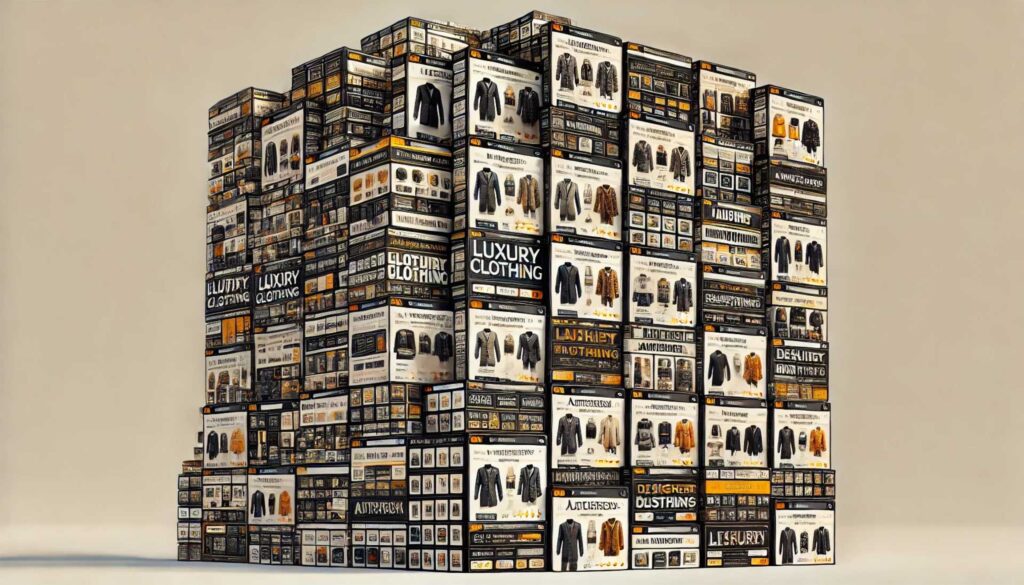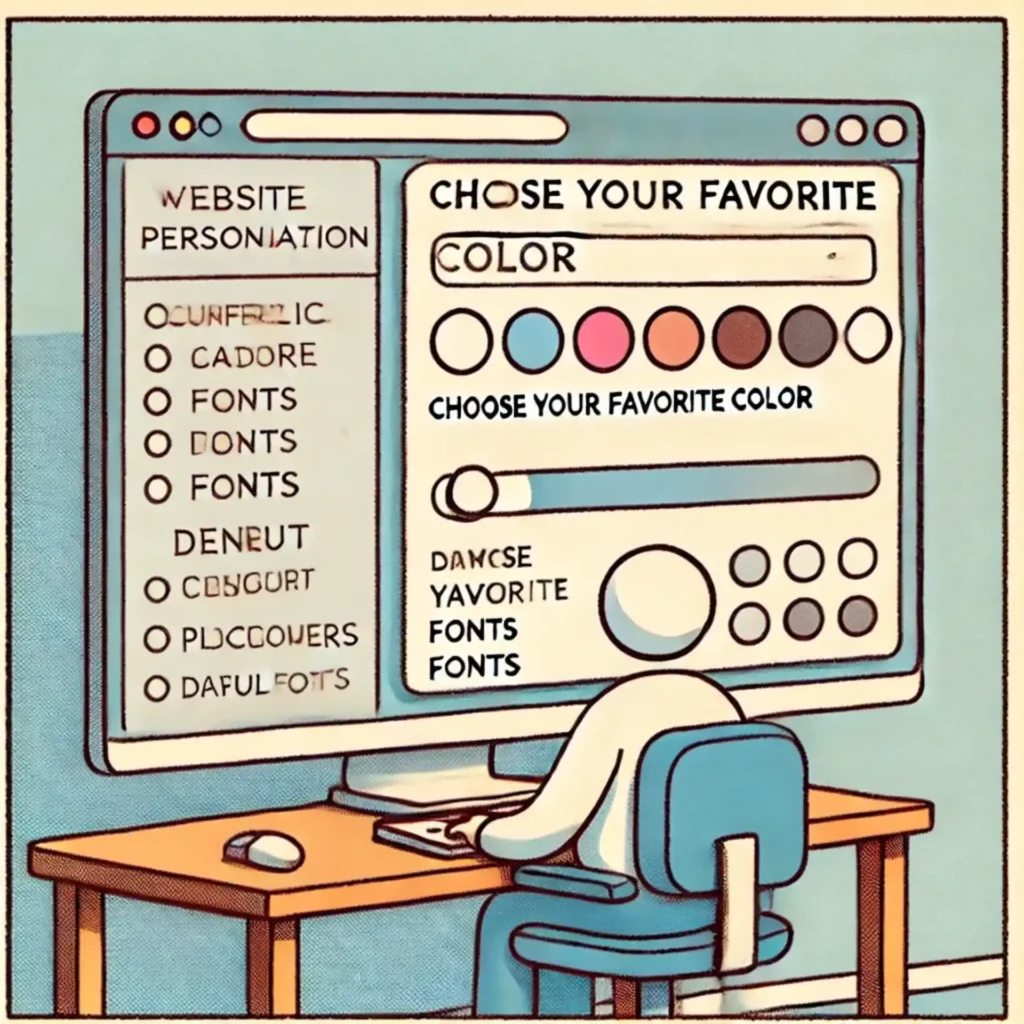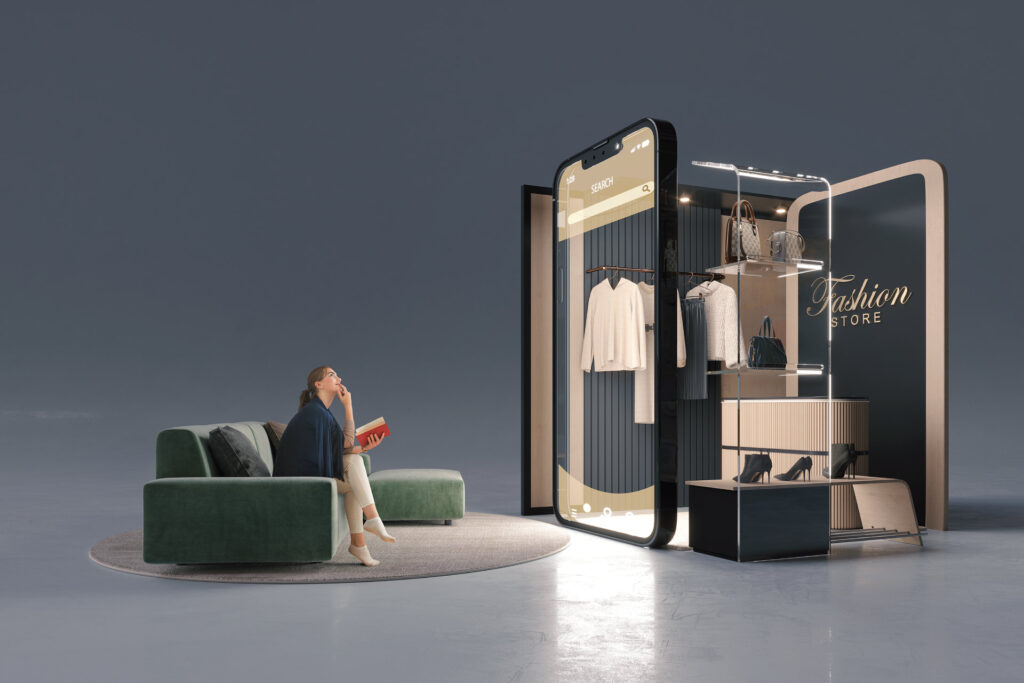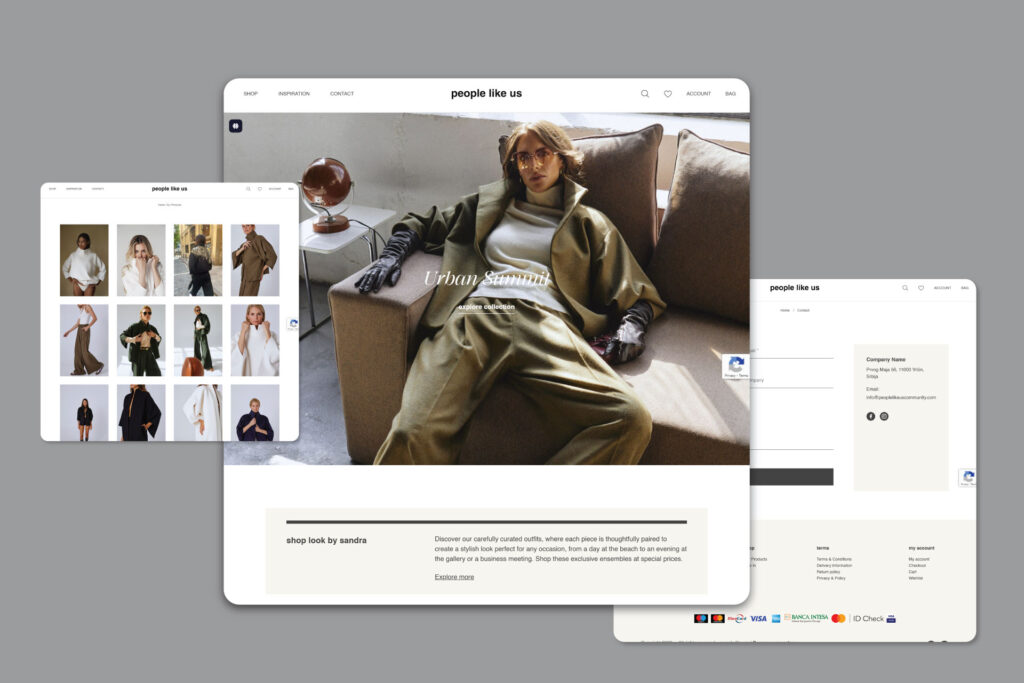In the luxury clothing industry experience is everything. The same applies to the online presentation of your brand.
You have been searching online for the best option for a luxury clothing website for your brand, and many will tell you Shopify is the best option.
This may be true for low-end and some mid-range brands.
But not when your brand offers high-quality products that are not mass-produced and you want to distinguish yourself as a premium option.
This is when Shopify doesn’t cut it.
As we know, luxury fashion isn’t just about selling clothes. It’s about selling an experience, prestige, and exclusivity.
You want to provide an experience similar to the one of a high-end boutique. You want the users to experience personalized service and a brand story that makes them feel special.
However, Shopify isn’t built to deliver the level of exclusivity and customization that luxury brands need.
Let’s explain why Shopify falls short for high-end fashion brands and what alternatives are better suited for you.
1. Shopify Makes Your Brand Look Like Everyone Else
As it is a template-based system, all of the websites from Shopify look and feel similar, unless you invest in heavy customization (that comes at a higher price).

Shopify uses a template-based system, meaning that unless you invest in heavy customization (which can be very expensive), your website will look and feel similar to many others.
Why This Poses a Problem?
Luxury brands are all about unique, carefully created experiences. This cannot be achieved when your website looks generic.
Generic websites don’t portray the same experience and feeling of exclusivity luxury shoppers expect.
What Luxury Brands Need:
- A fully customized design that reflects the brand’s story.
- Bespoke layouts that highlight products with editorial-style presentations rather than standard grids.
- Interactive elements that make the shopping experience feel special—like a personal shopper guiding the customer.
With Shopify, even with custom development, you’re still limited by its framework, making true exclusivity hard to achieve.
2. Too Basic Personalization Features
High-end shoppers won’t settle. They expect personalized experiences.
These can be private shopping appointments, exclusive collections, and recommendations that are tailored to their style.
This cannot be achieved through Shopify easily, even with apps. Luxury clothing websites should offer a seamless, truly high-touch experience.

Why lack of personalization a problem:
- Shopify’s product recommendations are basic—they work well for mass-market fashion but don’t cater to VIP clients.
- There’s no built-in way to offer invitation-only shopping experiences or concierge services.
- Luxury shoppers expect exclusivity, but Shopify treats all customers the same.
This is not what luxury brands need.
You will need personal shopping experiences with private access to new collections for VIP clients.
Product recommendations that are based on past purchases and preferences. Some luxury brands also choose to have membership tiers or invite-only sections for their most loyal customers.
For a luxury clothing brand website on Shopify to achieve this you will need multiple third-party apps.
These can make the website harder to manage, slower, and less seamless hurting user experience.
3. Luxury Clothing Website Checkout & Payment Options
We all need an effortless checkout process.
A high-end customer spending thousands on a single order expects this too, but with a flare of prestigious.
Let’s remember, it’s all about the experience and evoked feelings.

Shopify’s standard checkout is optimized for speed, but it lacks the refinement and flexibility that luxury brands need.
You will need a white-glove service, not a standard checkout.
High-end shoppers often use bank transfers, concierge payment accounts, or split payments—options that Shopify doesn’t natively support.
The checkout experience looks the same for every store, which removes the feeling of exclusivity.
What Luxury Brands Need:
- Custom checkout pages with a more premium look and feel.
- Luxury payment options, like split payments or concierge payment processing.
- Seamless VIP checkout, where returning clients don’t have to enter their details again.
Luxury websites should make the checkout process feel effortless and exclusive, but Shopify’s rigid system makes this difficult.
4. Limited SEO & Brand Storytelling
As a luxury brand you don’t simply sell products, you sell lifestyle, history, and story.
From our experience, many high-end brands love to use long-form content, editorial-style pages, and lookbooks to create an immersive experience for their customers.

Limitations of Shopify’s blogging and SEO features are evident in this section when compared to other platforms, such as WordPress.
Why does this matter?
Very often, luxury shoppers first do the research before purchasing. They read about brands, and check editorial content as well as lifestyle imagery.
In fact, almost everyone does that no matter what they are buying. If you are interested in how people choose to buy you can check out The ebook “Winning the Zero Moment of Truth” by Jim Lecinski (published by Google in 2011). It is becoming a bit outdated now with the emergence of AI but the user behavior described there is still valid.
After this small digression, let’s get back to the topic now.
The blogging system offered by Shopify is basic and not optimized for long-form storytelling.
SEO limitations mean Shopify stores often struggle to rank highly in search results for high-value terms.
URL structures and site architecture on Shopify are not as flexible as on other platforms, making it harder to optimize for search engines.
What Does Your Luxury Clothing Brand Need From a Website?
An SEO-friendly platform like WordPress + WooCommerce to rank for high-end fashion keywords.
A content-first approach, where the website functions like a luxury magazine, offering deep brand storytelling.
A seamless mix of editorial content and e-commerce, creating a rich, engaging experience.
For brands that rely on organic traffic and brand storytelling, Shopify can be too restrictive.
5. Shopify’s Scalability Is Limited Without Expensive Add-Ons
For luxury brands, performance and scalability are critical. Customers expect a fast, smooth experience no matter where they are in the world. However, Shopify relies on third-party apps to add missing features, which can:
- Slow down your website (a major issue for mobile shoppers).
- Create compatibility issues between different apps.
- Increase long-term costs, since essential features often require paid add-ons.
What Do You Need:
A lightweight, high-performance website that runs smoothly without excessive plugins.
A fully custom backend that integrates seamlessly with inventory management, VIP client tracking, and CRM systems.
Complete control over site speed and performance, ensuring a luxury-level experience.
With Shopify, brands are locked into Shopify’s ecosystem. While Shopify Plus offers more flexibility, it still doesn’t provide full control over scalability, performance, and integrations.
6. Better Alternatives for Luxury Clothing Websites
Instead of Shopify, for a truly unique and custom experience, you should look for:
1. Custom-Built Websites (WordPress + WooCommerce)
A fully custom WooCommerce store offers:
- Complete design control to create a truly unique and exclusive website.
- Better SEO capabilities for luxury brand storytelling.
- A more personalized shopping experience tailored to high-end customers.
2. Headless e-commerce Solutions
Platforms like MedusaJs, and Headless WordPress allow brands to create a fully custom front-end experience while still managing products in a backend system.

7. People Like Us – Luxury Fashion Brand’s Success Story
People Like Us is a luxury fashion brand that, thanks to its modern store design and the hard work of our marketing team, has successfully sold out its collections.
With this proven success, they are now preparing to conquer the U.S. market.

Their website is built on WordPress with the WooCommerce plugin, providing them with a flexible and customizable platform to manage their online store and deliver a seamless shopping experience to their customers.
This setup has helped them achieve a strong presence in their current market, and as they expand, they will likely continue using WordPress’s scalability to meet the needs of a growing audience.
Final Thoughts: Shopify Is Not Built for Luxury
While Shopify is great for mass-market fashion brands, it lacks the flexibility and exclusivity needed for true luxury e-commerce.
A luxury website should feel like an invitation-only experience, not a generic online store.
With better alternatives like WooCommerce or custom-built platforms, brands can create a truly high-end shopping journey that mirrors the prestige of their products.
If you’re serious about elevating your brand and offering a VIP-worthy shopping experience, Shopify may not be the best choice.
Investing in a custom-built, high-performance e-commerce platform will ensure that every customer touchpoint reflects luxury, exclusivity, and prestige.
Need someone who understand luxury industry to build your website?





